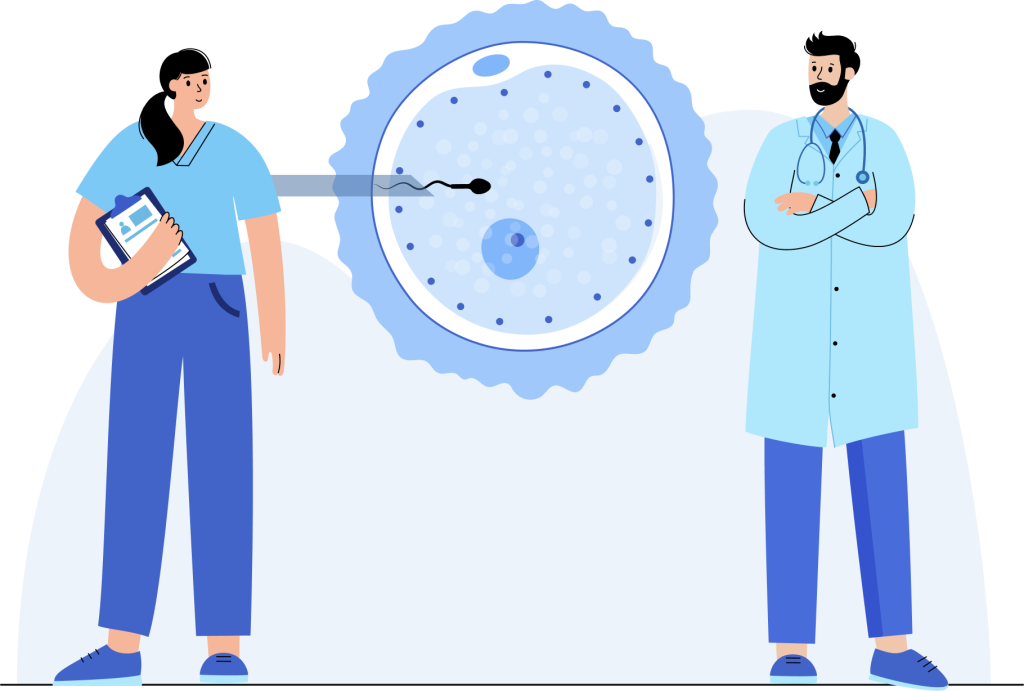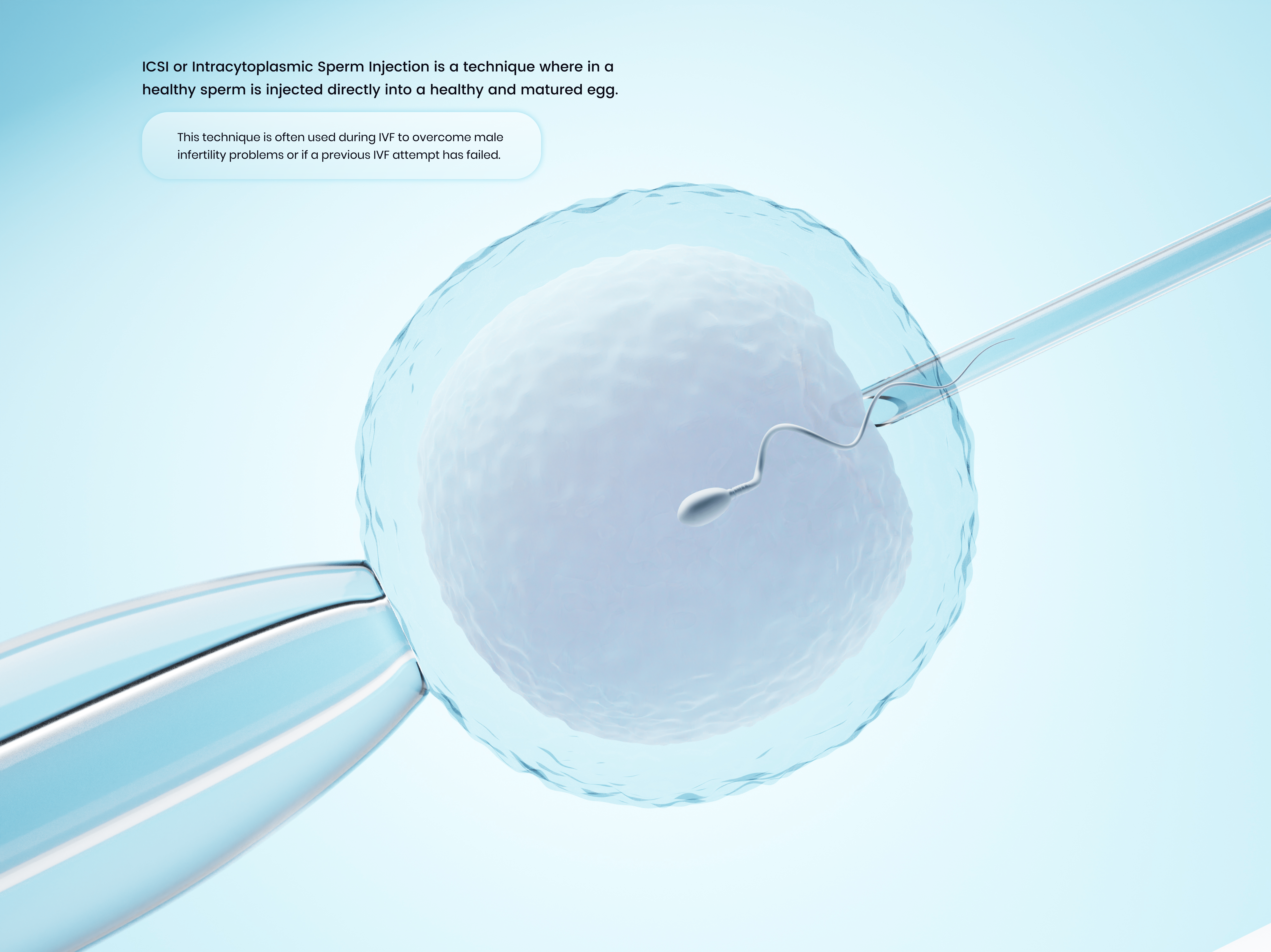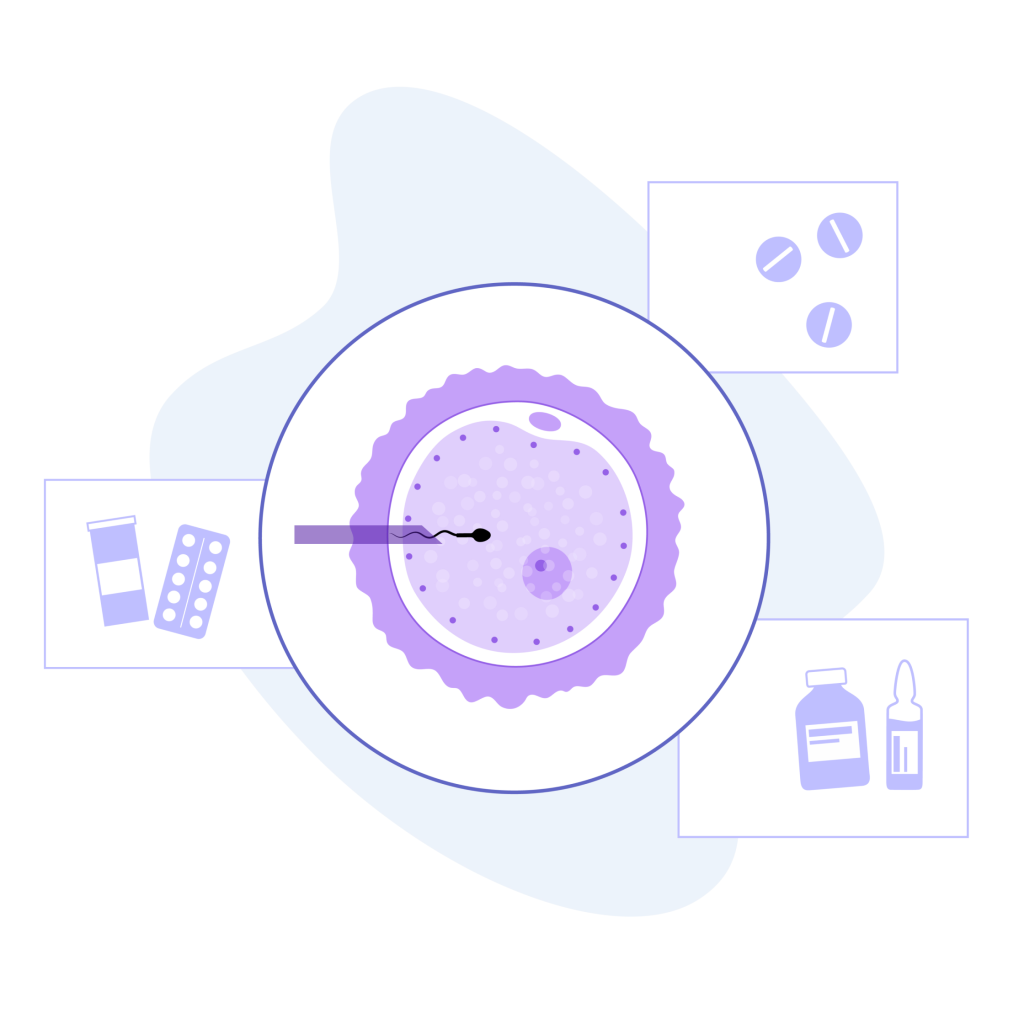Home / Fertility-Treatments / ICSI

ICSI
(Intracytoplasmic sperm injection)
Best ICSI Hospital In Hosur, Dharmapuri, Krishnagiri, Tirupattur
Being a Fertility Center, Vijay Srishti’s team understands the hope and anticipation that goes behind each of the procedures we perform. With empathy and care being our cornerstones when it comes to fertility treatments, the doctors at Vijay Srishti Fertility Center help couples looking to conceive identify their best possible options including IVF-ICSI. Our success rate is one of the highest and we have had the immense joy of bringing new members into patients’ families. Learn more about ICSI from our medical experts.


ICSI or Intracytoplasmic Sperm Injection is a technique where in a healthy sperm is injected directly into a healthy and matured egg.

Benefits of ICSI
Intracytoplasmic Sperm Injection technique enhances the quality of sperm in terms of mobility and is a helpful procedure during the IVF treatment.
Other benefits of ICSI are synchronous with those of IVF.
Success of ICSI
The success of ICSI is highly dependent on factors such as age of the couple and sperm quality. Along with these factors, factors affecting treatment of IVF- Age, Reproductive History, Number of Eggs or Sperms harvested, Number of healthy embryos formed, Chances of embryo implantation in the uterus, Cause of Infertility, Lifestyle Choices, may also be factors transpiring the success of the procedure. Before any procedure or medical examination, it is highly advisable that the couple seeks a proper medical examination and course of treatment at our fertility center.

Cost of ICSI
The cost of the ICSI treatment is reasonable and affordable but is dependent on a few factors like the type of infertility and on the requirements of further assisted treatments.
Cost of ICSI
The cost of the ICSI treatment is reasonable and affordable but is dependent on a few factors like the type of infertility and on the requirements of further assisted treatments
Frequently Asked Questions
Yes, ICSI has a few risks that the patient needs to be aware of before the procedure. These are:
- A small number of eggs (not more than 5%) are at a risk of damage because a needle is inserted during the procedure
- There is a slight risk (0.8%) of conceiving a baby with abnormalities associated with sex chromosome.
- Chromosomal abnormality may increase the chances of
- Miscarriage
- Heart defects in infants
- Cognitive disabilities in children
- Children born with fertility problems
It is recommended that the 10% couples, who cannot conceive naturally after a year, should seek fertility advice. Specifically, women in their thirties are encouraged to have a medical evaluation and seek medical advice after trying and women in their forties should seek a fertility doctor after deciding to have a baby.
No, there is no difference between ICSI and non ICSI embryos. The overall embryo quality is same in comparison. Similarly, they do not cause any difference in pregnancy rates as well.
Apart from regular medical and blood tests, the following test are needed to be performed before the ICSI procedure is done:
- A testicular biopsy is needed if the male is facing problems with sperm production. In testicular biopsy, a small piece of the testicular tissue is extracted and studied.
- Blood tests are required to check for hormone levels.
- Genetic testing may be required with couples where there is even a slightest possibility of passing on an inheritable genetic condition to the baby. Genetic testing is done usually with males who have poor sperm characteristics as fertilizing the eggs with these sperms holds a risk of a genetic condition to the baby.
In a conventional IVF (in vitro fertilization) treatment, about 2 lakh sperms are placed in a petri dish along with the egg for the fertilization to take place. In an ICSI (Intracytoplasmic Sperm Injection), a single sperm is injected into the center of an egg with the help of a needle and vial.
If you have undergone the ICSI treatment in the past and the fertilization was not successful due to reduced quality of eggs, immature eggs, or poor quality of sperms in terms of morphology, ICSI might not be very helpful for you.


